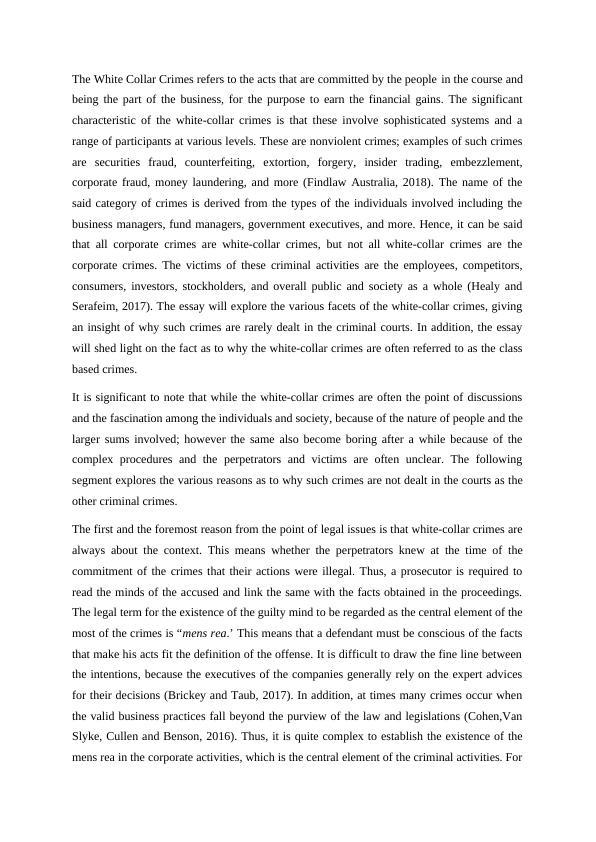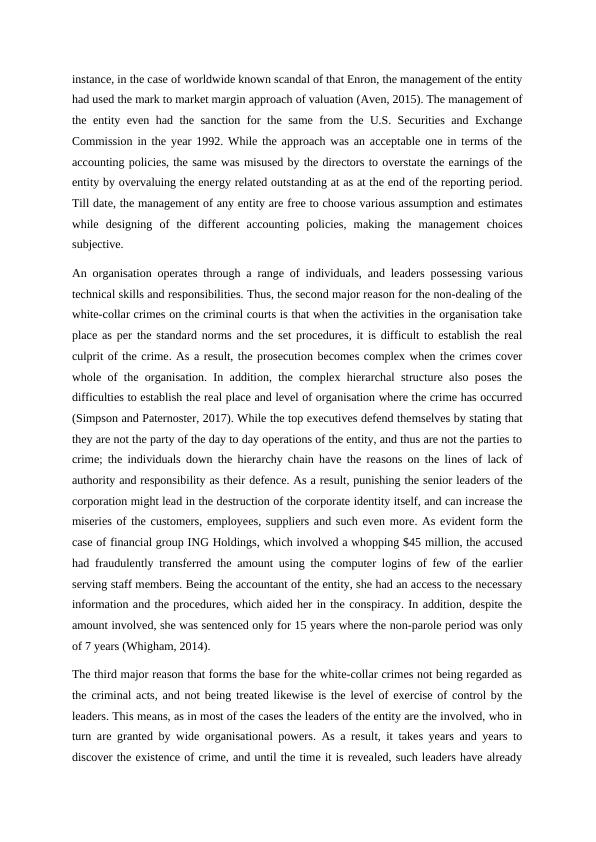White Collar Crimes: Reasons for Non-Dealing in Criminal Courts
7 Pages2301 Words355 Views
Added on 2023-06-05
About This Document
The essay explores the reasons why white-collar crimes are rarely dealt in criminal courts. It sheds light on the fact as to why the white-collar crimes are often referred to as the class-based crimes. The essay gives a glimpse of the various reasons that form the base of white-collar crimes going unnoticed and not prosecuted criminally in the court. The latter part of the essay describes the pieces of evidence, which support the notion that white-collar crimes are the class-based crimes.
White Collar Crimes: Reasons for Non-Dealing in Criminal Courts
Added on 2023-06-05
ShareRelated Documents
End of preview
Want to access all the pages? Upload your documents or become a member.
The Cruel Mirage of Imperialistic Idealism
|4
|728
|19
Current Law on Intent
|6
|1732
|401
Crime and Society
|8
|2278
|472
Corporate Crime: Types, Consequences, and Legislations in the UK
|12
|4193
|21
The role of the judiciary in criminal justice
|13
|4149
|21
Impact of Globalisation on Criminal Justice in Australia
|7
|1863
|60



